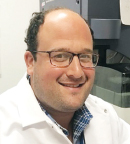Engineering chimeric antigen receptor (CAR) T cells to overcome CD58 loss may be a way to boost responses in patients with diffuse large B-cell lymphoma (DLBCL) who do not respond to treatment with axicabtagene ciloleucel and other CAR T-cell therapies, according to an experimental study presented at the 2020 American Society of Hematology (ASH) Annual Meeting & Exposition.1 The data derived from mouse models suggest that modifying CAR T-cell therapy by providing CD2 co-stimulation in trans may restore the efficacy of therapy in patients with CD58 mutations.
The anti-CD19 CAR T-cell immunotherapy axicabtagene ciloleucel has improved outcomes for a large number of patients with DLBCL. Approximately 40% of patients achieve durable remission with this therapy, but the rest do not have a durable response. Understanding the mechanisms of resistance, such as CD58 alterations or mutations, may lead to a strategy to improve outcomes.
“The outcomes for patients who do not obtain durable, complete responses are really poor, [with a median] overall survival of up to 200 days,” said lead study author, Robbie G. Majzner, MD, Assistant Professor at Stanford University School of Medicine.

“Only when we adopted this trans set up did we have significant tumor control of the CD58 knockout tumor cells and a significant prolongation in survival.”— Robbie G. Majzner, MD
Tweet this quote
CD58 alterations or mutations are implicated in resistance to CAR T-cell therapy. CD58 is the receptor of the CD2 molecule expressed by T cells and natural killer cells, and its expression is necessary for T-cell– and natural killer cell–mediated cytotoxicity.According to previously published studies, CD58 mutations or loss occur in about 20% to 30% of patients with DLBCL.
Key Study Findings
Analyzing Samples from 51 patients treated with axicabtagene ciloleucel, the researchers discovered that the tumors of about 25% of the patients lacked a fully functioning version of CD58. In all but one of these patients, axicabtagene ciloleucel had no lasting effect.
In patients with DLBCL who had a CD58 alteration—either a mutation by next-generation sequencing of circulating tumor DNA or absence by immunohistochemistry—median progression-free survival was 3.12 months compared with not reached for those with CD58 wild-type disease (P = .0043), at a median follow-up of 12.4 months.
Dr. Majzner noted that less than 30% of those with CD58 alterations had complete responses to treatment with axicabtagene ciloleucel compared with almost 80% of patients with CD58 wild-type disease. Partial responses were seen more often in those with CD58-altered DLBCL (approximately 60%) compared with CD58 wild-type disease (approximately 15%).1
Unraveling Immune Escape
The researchers compared responses in a CD58 knockout mouse model and in a CD58 wild-type leukemia model treated with an axicabtagene ciloleucel–like product. Long-term disease control was achieved in the CD58 wild-type leukemia model compared with the CD58 knockout leukemia model, who experienced initial disease control and response but ultimately relapsed and died of disease progression. Similar data were observed in mouse models treated with a tisagenlecleucel-like product.
“We say axicabtagene ciloleucel–like product in the abstract because we used the same CAR construct but manufacture the T cells differently in the laboratory,” Dr. Majzner noted.
Based on their observations, to overcome CD58 loss, the investigators reengineered CARs to integrate CD2 signaling in trans to reestablish the efficacy of the T cells. “Only when we adopted this trans set up did we have significant tumor control of the CD58 knockout tumor cells and a significant prolongation in survival,” he emphasized.
“These data were very surprising to us, to see how important CD2 co-stimulation turned out to be for CAR T cells. We always considered CAR T cells to be already endowed with all necessary co-stimulation. What these data tell us is that other co-stimulators on the surface of tumor cells really matter and can drive CAR T-cell efficacy,” explained Dr. Majzner.
Future Goals
“Bringing cures to the 25% of patients with CD58 abnormalities who are not currently experiencing long-term disease control would significantly improve the impact of CAR T cells in this population,”said Dr. Majzner. “Ultimately, we could potentially screen patients for CD58 status and provide a more precision approach to this therapy. Clinical trials of these modified CAR T cells could be underway within 1 to 2 years.”
Dr. Majzner and colleagues are hopeful that the modified CAR T-cell therapy will significantly increase the number of patients who are likely to benefit from axicabtagene ciloleucel. This research can inform immunotherapy research for other malignancies where CD58 mutations are common, he noted.
“CD58 mutations have been described across hematologic malignancies, including multiple myeloma and Hodgkin lymphoma, and there are even reports of CD58 mutations in solid tumors. Initial activity in preliminary studies is exciting. We think that overcoming CD58-associated resistance is important not only for adoptive cell therapies but for other immunotherapies as well,” predicted Dr. Majzner.
Not Yet Ready for Prime Time
As of now, this research remains academic. At this early point, Dr. Majzner does not suggest patients be treated with this type of reengineered CAR T-cell therapy upfront. Nor does he suggest that all patients be tested for CD58 aberrations prior to CAR T-cell therapy.
“For now, this is a single-center study. The relationship between CD58 loss and response was significant in multivariate analysis, but this was retrospective and needs confirmation in a larger trial to rule out whether patients should be treated [with this reengineered therapy] upfront. At this time, I would not say patients should not be treated with one of the commercially available CAR T-cell products. As we develop this approach, we need to figure out which patients could next be served by one of these therapies that overcome resistance.” Dr. Majzner shared these comments at a press conference where these data were discussed.
DISCLOSURE: Dr. Majzner has served as a consultant to Xyphos Biopharma, Zai Lab, Lyell Immunopharma. Aprotum Group, and Illumina Radiopharmaceuticals and on the board of directors of GammaDelta Therapeutics; and is a founder of and holds equity in Syncopation Life Sciences.
REFERENCE
1. Majzner RG, Frank MJ, Mount C, et al: CD58 aberrations limit durable responses to CD19 CAR in large B cell lymphoma patients treated with axicabtagene ciloleucel but can be overcome through novel CAR engineering. 2020 ASH Meeting & Exposition. Abstract 556. Presented December 7, 2020.


